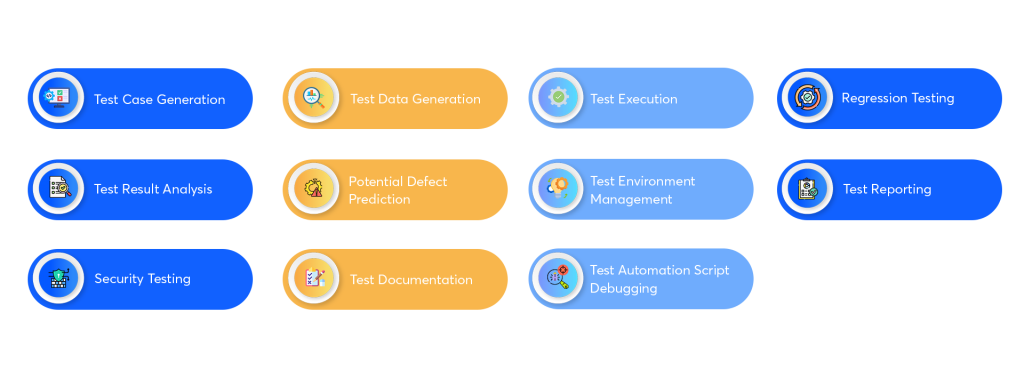Month: November 2023
The Pivotal Role of Generative AI in Revolutionizing Software Testing and Assurance
Generative AI is a powerful technology that can create new content or data from existing data, such as images, text, audio, or code. It has many applications in various industries, mainly mobility, e-commerce, fintech, and healthcare. But one of the most promising and impactful areas where generative AI can make a difference is software testing and quality assurance (QA).
Software testing and QA are essential processes in software development, as they ensure that the software meets the requirements, specifications, and expectations of the stakeholders and users.
However, software testing and QA are also challenging, time-consuming, and costly, as they involve many manual tasks, such as writing test cases, executing tests, finding bugs, and reporting results. Moreover, as software becomes more complex, dynamic, and diverse, the demand for software testing and QA increases, putting more pressure on human testers and the software development lifecycle. This is where generative AI in software testing can help.
Artificial intelligence is the future of testing because it can automate and optimize many aspects of software and QA testing, such as test case generation, test execution, bug detection, and feedback learning. As per a recently published report by Data Bridge Market Research, the automation testing market is experiencing substantial growth with a compound annual growth rate (CAGR) of 17.06%, projected to achieve a market value of USD 93.6 billion by the year 2032, according to Future Market Insights.

Benefits of Generative AI in Software Testing
By using generative AI, software testers and QA testing engineers can achieve the following benefits:
Comprehensive test coverage
Deployment of quality assurance software testing tools enhances test coverage across various platforms and environments, ensuring that every component interacts as intended, under a wide range of conditions, before being released. The tools also facilitate regression testing, ensuring that new code does not disrupt existing functionalities. As a result, this leads to a more robust and reliable software product, as comprehensive test coverage is a cornerstone of high-quality software development.
Generative AI represents a transformative leap in quality assurance and software testing by automating the generation of test cases aligned with specified requirements and scenarios. This advanced capability ensures comprehensive coverage of potential inputs, outputs, and program paths, thereby mitigating the risk of overlooking critical bugs or errors in the software.
Faster and more accurate test execution
With the help of Generative AI in software testing, one can execute tests faster and more accurately than humans, detecting bugs and anomalies in the code and reporting them in real-time. It enables faster feedback loops and shorter delivery times, as well as higher software quality and reliability.
Continuous improvement and learning
Learning from past data and feedback is another quality of Generative AI utilized to improve the quality and efficiency of test generation and execution over time. This allows it to adapt to the changing requirements, scenarios, and environments of the software, as well as to discover new patterns and insights that can enhance the software testing and QA testing processes.
Enhanced creativity and productivity
Generative AI in software testing can free up human testers from repetitive and mundane tasks, allowing them to focus on more creative and strategic aspects of software and QA testing. This can improve the satisfaction and motivation of the human testers, as well as their collaboration and communication with the developers and other stakeholders.
Artificial intelligence has the potential to transform the quality assurance and software testing processes, resulting in faster delivery times, higher software quality, and lower costs.
However, generative AI also poses some challenges, such as the need for human supervision, ethical issues, and the evolving testing role in the era of AI in software test automation. Therefore, software testers and QA engineers need to be aware of the opportunities and limitations of generative AI and how to leverage it effectively and responsibly in their work.
It All Comes Down To…
Generative AI is not a replacement for human testers but a powerful tool that can augment and enhance their capabilities and performance. By combining the strengths of AI and human testers, quality assurance, and software testing can reach new levels of excellence and innovation.

